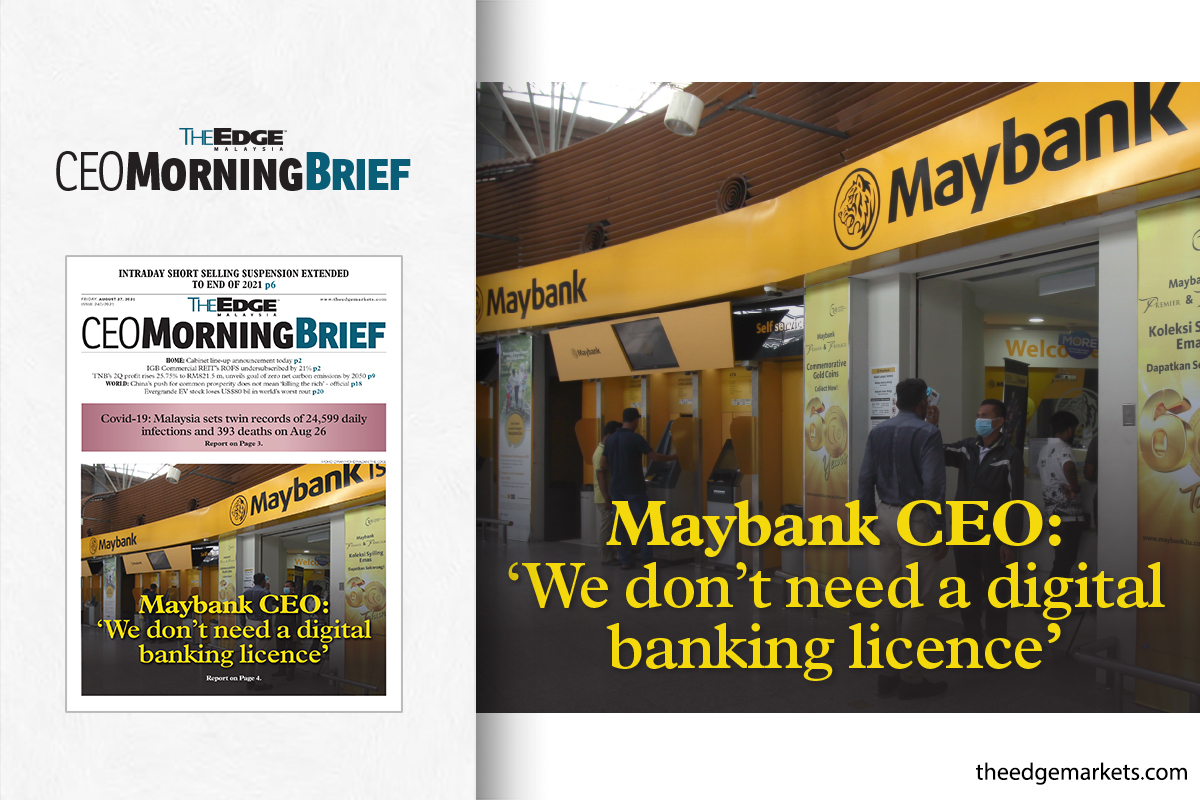
KUALA LUMPUR (Aug 26): Malayan Banking Bhd (Maybank) said it does not need a digital banking licence as it is technically already a digital bank, thanks to the technological investments it has made since 2014 in innovating its services.
Maybank group president and CEO Datuk Abdul Farid Alias pointed out that the group is already offering digital banking services as it has been onboarding customers without needing them to be physically present at a branch via MAE, which he said has “blurred the line between bank and digital wallet”.
He said MAE is more than banking, as it is a platform with various functions, which provides its customers with a more integrated experience within what was previously just a banking app.
Abdul Farid pointed out that Bank Negara Malaysia (BNM) requires these digital banks to drive financial inclusion by ensuring quality access and responsible usage of financial services, and therefore these players are meant to serve the underserved and the hard-to-reach segments.
“At the end of the day, it’s about inclusivity and serving the underserved. We have launched our SME Digital Financing programme, which uses big data and machine learning to allow us to improve our ability to underwrite credit in the SME sector beyond what we were doing before,” he said, pointing out that the bank has approved about 1.2 billion loans for about 12,000 SMEs.
He said that Maybank already has all the trimmings of a digital bank, based on its initiatives and programmes introduced over the last few years, with more to be announced later this year and in 2022.
“These are the components of a digital bank. We could put this all under one subsidiary and this subsidiary would be able to operate without any branches — people can open an account and they can even apply for loans.
“Our digital banking journey did not start last year — it started in 2014. We do have the option to introduce digital banking under our current licence, so we don’t need the digital banking licence,” he said.
Asked on his views regarding the eventual five winners of BNM’s digital banking licence, Abdul Farid said that many of those that venture into the digital space usually target payments, pointing out that there are many e-wallet players in the country already.
He said many of these players are losing money in their efforts to shift customer behaviour towards digital payments and some of these players will eventually run out of cash.
“This is no different from the behaviour we see in other markets, for example in the UK, where some of the players have left the industry because they cannot sustain their operations without a war chest,” he said.
He also said that the intention of these players venturing into the financial space differs from one to another, as some are eyeing the customer behaviour data that they can gather, which can be used for something else within their existing ecosystem.
“This could be for advertising purposes or something else. But for us, one of our primary functions is to lend to the real economy — for the consumer. For the rest of the players, it will depend on whether they have enough to do the same as well, to provide lending.
“Lending, by nature, is a risky business. It may look interesting from the outside, but in reality it doesn’t run away from the maths, as lending is a function of the liquidity and capital you have,” said Abdul Farid.
BNM received a total 29 applications for digital bank licences, following the six-month application period which ended on June 30, with applicants coming from a diverse range of segments ranging from banks, industry conglomerates, technology firms, e-commerce operators, fintech players, cooperatives and State Governments.
The Central Bank had said it may be granting up to five licences with successful applicants to be announced in the first quarter of 2022.
To receive CEO Morning Brief please click here.
